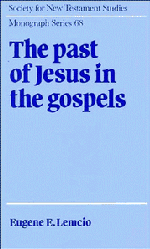Book contents
- Frontmatter
- Contents
- Acknowledgments
- List of abbreviations
- 1 Introduction: faith, kerygma, gospels
- 2 Mark
- 3 Matthew
- 4 Luke
- 5 John
- 6 Summary and implications
- Appendix The unifying kerygma of the New Testament
- Notes
- Bibliography of works cited
- Index of biblical references
- Index of modern authors
- Index of subjects
- Frontmatter
- Contents
- Acknowledgments
- List of abbreviations
- 1 Introduction: faith, kerygma, gospels
- 2 Mark
- 3 Matthew
- 4 Luke
- 5 John
- 6 Summary and implications
- Appendix The unifying kerygma of the New Testament
- Notes
- Bibliography of works cited
- Index of biblical references
- Index of modern authors
- Index of subjects
Summary
Introduction
Over twenty years ago and against the developing consensus, especially among continental scholars, that the gospel was a creative theological work designed to support or correct the beliefs of Christians (i.e., for those who were advanced in the faith), C.F.D. Moule argued that Mark's aim was apologetic and evangelistic, focused upon the outsider who needed to know the essentials of the story. Even if Mark had intended his gospel for Christians, he wrote for believers engaged in evangelism to remind him of the facts on which the superstructure of their faith stood or fell. In being true to those rudiments of the account, the Evangelist knew and maintained the difference between the past of Jesus and his own situation while at the same time desiring to “tell faithfully the story of how the former led to the latter”.
In support of his thesis, Professor Moule compared and contrasted certain themes of the second gospel with the prevailing concerns of the early church as reflected primarily by the Pauline literature, especially Romans. Wanting or rare and oblique in the gospel were such prominent features as an exalted christology, incorporation into the body of Christ, redemptive significance of his death, appropriation of its benefits, and a doctrine of the Holy Spirit. In the absence of these ideologies, what remained were facts – not nuda facta, to be sure, but the results of an effort to preserve the story as it was, with as little adornment as possible.
- Type
- Chapter
- Information
- The Past of Jesus in the Gospels , pp. 30 - 48Publisher: Cambridge University PressPrint publication year: 1991



